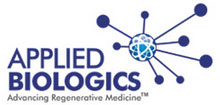
Plantar fasciitis is a painful and debilitating condition that can, at times, be recalcitrant in nature and difficult to treat with conservative care. Understanding the pathophysiology of the condition is imperative for successful treatment. Front line treatment for years has included steroid injections of the heel as well as physical therapy, use of a night splint, modifications of shoe gear, and implementation of pre-fabricated and/or custom molded orthoses. This treatment plan targets the immediate pain secondary to inflammation as well as the underlying pathomechanics and deformities coupled with different foot types.
Other factors such as activity level also play a large role in the etiology, but are often most difficult to control. When conservative treatment measures have failed in the past, other treatments have been used such as Platelet-Rich Plasma (PRP) injections, Extracorporeal Shockwave, Topaz procedures or surgery with plantar fasciotomy ranging  from open to percutaneous and even endoscopic procedures. However, recent use of a chorion-free, human-amnion allograft implant suggests that there is a non-surgical, clinically effective alternative to the aforementioned procedures. The implant by injection of a chorion-free, amnion-derived allograft appears to offer the clinician an additional treatment option when conservative measures have proven unsuccessful.
from open to percutaneous and even endoscopic procedures. However, recent use of a chorion-free, human-amnion allograft implant suggests that there is a non-surgical, clinically effective alternative to the aforementioned procedures. The implant by injection of a chorion-free, amnion-derived allograft appears to offer the clinician an additional treatment option when conservative measures have proven unsuccessful.
Amniotic fluid and membrane have been used to treat various medical conditions for over 100 years, including chronic wounds, inflammation, thermal injury and orthopedic defects. Its utility is derived from a tissue which is rich in mesenchymal cells, growth factors and anti-inflammatory proteins that support the body�s native tissue-regeneration potential. As an FDA regulated, minimally-manipulated allograft, this nutrient rich tissue has three essential and identifiable properties which make it an excellent choice for graft application:
- it is a powerful non-steroidal anti-inflammatory
- it prevents fibrosis of host tissue
- it is antibacterial in nature
Amniotic flowable human allograft (FloGraft® Applied Biologics Scottsdale, AZ) is a cryopreserved, chorion-free liquid injectable form of human amniotic membrane and fluid. It is notable that chorion, and specifically the trophoblastic layer, has the potential to express Class II antigens, causing an enhanced inflammatory response as the body undergoes a rejection process of the tissue. Chorion-free allograft avoids this risk of Class II antigen expression. The allograft is minimally manipulated and has been utilized successfully for such podiatric pathology as achilles tendonitis, plantar fasciitis, Haglund’s deformity, tendon and ligament repair, tarsal tunnel release, non-healing wounds, and delayed/non-union fractures. For treatment of chronic achilles tendonitis and tendinosis, a technique has been described where amnion flowable human allograft (FloGraft®) is injected into the tendon medially and laterally to surround and nourish the injured tendon. This technique has been used with great success by several surgeons including Marie Williams, DPM and myself.
A recent case report of intractable plantar fasciitis describes a 63 year-old female who was initially treated with two corticosteroid injections as well as seven months of physical therapy three times per week. During the course of treatment, a night splint, CAM walker, plantar rest taping, and pre-fabricated as well as custom molded orthoses were implemented. Despite seven months of intensive therapy, the patient failed to achieve resolution of symptoms. A single 1cc injection of amniotic flowable human allograft (FloGraft®) was performed in the affected heel utilizing a “tenolysing” technique to break up scar tissue in the plantar fascia in multiple areas. A CAM walker was implemented at this time and physical therapy was stopped after the treatment. Eight weeks after the amnion injection, the patient reported 100% resolution of pain with complete return to normal daily activities utilizing her custom molded orthoses in regular shoes. The total cost of her initial care was $6,815. The total time for physical therapy including drive time resulted in a loss of 252 work hours over a seven month period. The total procedure cost of having her plantar fascia lysed with application of amnion allograft was thousands of dollars less than the patient’s previously unsuccessful treatment plan. The economic impact due to loss of productivity was not quantified, but is clearly significant for both the patient and employer.
In conclusion, cryopreserved, amniotic flowable human allograft (FloGraft®) has demonstrated the ability to address a wide variety of podiatric applications that formerly had few effective treatment options. With over 100 years of clinical applications, this rich source of organic nutrients, carbohydrates, growth factors and anti-inflammatory proteins appears to provide the clinician with an additional treatment option for a variety of recalcitrant podiatric conditions. The use of cryopreserved, amnion allograft in treatment of plantar fasciitis appears to provide a viable alternative to surgery, is an excellent addition to a clinician’s conservative treatment plan, and appears to hold the potential to decrease the overall cost of medical care by speeding recovery time.
 
Amniotic Membrane & Fluid: A Biologic System
FloGraft® is human allograft derived from prescreened, live, healthy donors comprised of chorion-free amnion and amniotic fluid. The tissue is aseptically recovered, processed and cryopreserved to provide well-preserved human tissue for clinical use as a soft-tissue defect filler.
Amniotic membrane and fluid act as a biologic system that ensures symmetrical structure development and growth; cushions and protects the embryo; has a significant defensive role as a part of the innate immune system, and protects the fetus by maintaining consistent pressure and temperature. As a liquid allograft, FloGraft® retains this protective function by acting as a tissue matrix for use in filling soft tissue defects, or for points of localized inflammation. |
|
| |
To learn more about Applied Biologics FlōGraft®, and its
products and services,
please contact us. |
| |